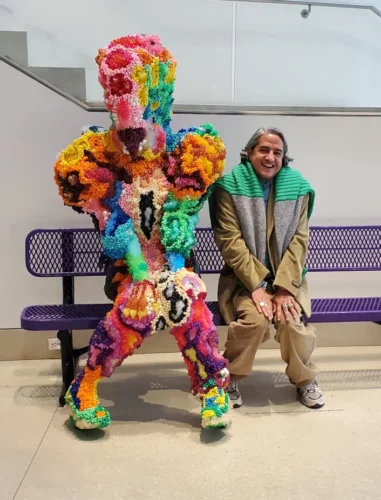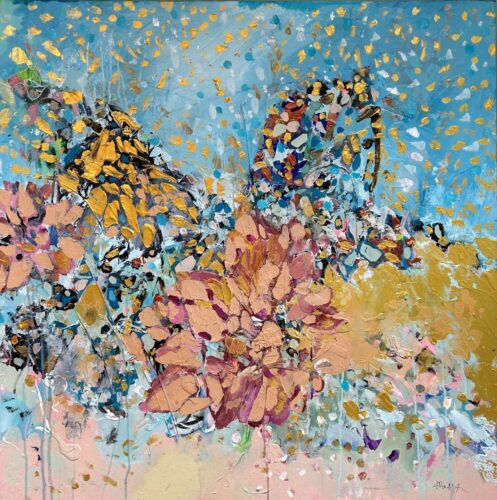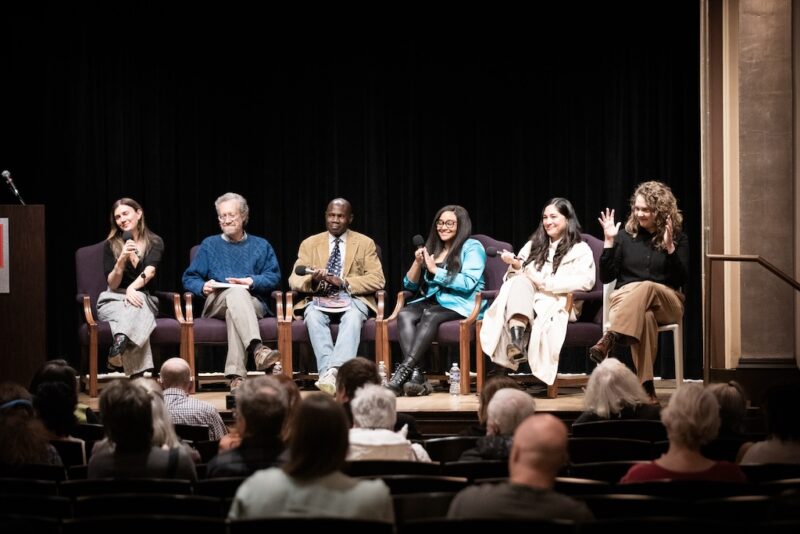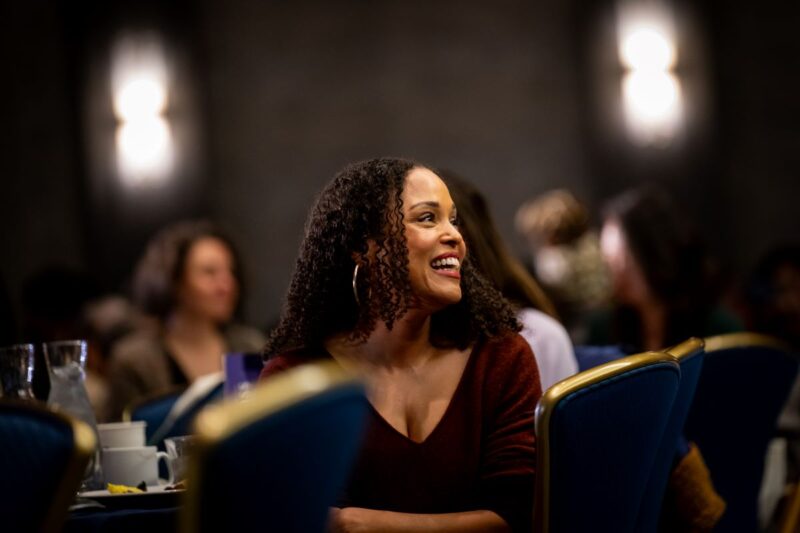Gilman grad and author of Autogeography, winner of the Cave Canem Northwestern University Poetry Prize, Reggie Harris became involved with Cave Canem in 1997, one year after its founding. Cave Canem (Latin for “Beware the dog,” a reference to a sign hung in the ruins of Pompeii, outside of the House of the Tragic Poet), was established in New York by Toi Derricotte and Cornelius Eady, two poets who were acutely aware of the lack of inclusion and community for writers of the African diaspora. The mission of Cave Canem is to connect and empower Black poets. Since 1996, Derricotte and Eady’s vision has taken off, supporting over 500 poets, encouraging their growth, both artistically and professionally.
At the annual Cave Canem retreat, Harris found he no longer had to explain his poetry. Each summer, Black writers from across the country come to be a part of the fellowship, and yet there’s an unspoken sameness in their experiences, no matter how different their backgrounds or upbringings. There is a shared tongue in the Black community, an understanding.
“It was the first time I was around so many living Black poets,” Harris said, “It was amazing to see that there were people my age and older, living, writing and working […] it was a way to connect everyone together.” Prior to joining Cave Canem, he had a short list of notable Black poets in his head, likely the same ones you’d rattle off at a moment’s notice: Langston Hughes, Gwendolyn Brooks, Lucille Clifton. Now, his list of contemporary Black poets (and peers) grows by the day. As Harris stated, “it’s great to be around people who get it.”
Cave Canem plunged him into a world full of poets willing to take the journey with him. Fellows are invited to an intensive week-long residency where they focus on craft. Artists, varying from traditional to spoken word poets, come together and are challenged to create a poem each day of the retreat. This eustress helps poets hone their craft. It also fortifies the bonds between writers. It adds another common shared experience for the members of the cohort. The literal fellowship between people is as important as the writing exercises. It remedies the idea that being a writer must be an isolating activity. Becoming part of a larger community of poets changed Harris and his writing for the better. He considers being challenged a good thing. “It’s expanded my notion of what I can do,” said Harris. The innovation and collaboration do not stop when the poets leave their week-long residency.
Harris can recall a time where he could open any prestigious literary magazine in the country, flip to the table of contents, and recognize the names of people affiliated with the foundation. He knows this is still true, but he’s proud to point out he couldn’t possibly know every member anymore due to Cave Canem’s growth. In the organization’s early days, the days before social media, Harris put his skills as a librarian to use, creating Listserv email groups that members used to communicate. Now, the larger organizational framework helps writers stay in touch with one another. Relationships continue to thrive digitally in workshops and communities where writers discuss prosody, structure, and theme. This kinship exists between all Cave Canem writers, even if they didn’t attend the same workshop or retreat in the same year.
When Harris spoke of the greater impact Cave Canem has had on the literary world, he’s quick to mention a few of the notable fellows within the organization’s ranks. He is a Pushcart Prize nominee in the company of MacArthur “geniuses,” Poets Laureate, and winners of the National Book Award and Pulitzer Prize.
Cave Canem, in Harris’ words, has “elevated the notion that African American poetry is something to take seriously.” Along with this prominence comes a greater responsibility for the creative community. Cave Canem’s positive reputation has broadened the scope of work that their foundation can do. There has been an expansion of book prizes, workshops, anthologies, and scholarships. The reach of their workshops now span the nation. “We’ve started something, and it’s really changed the face of American poetry.”
















